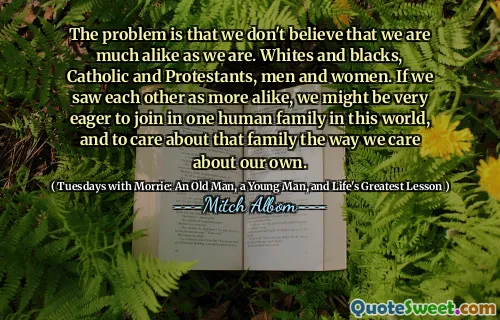{You do not have to be shamed in my closeness. Family are the people who must never make you feel ashamed.}{You are wrong. Family are the people who must make you feel ashamed when you are deserving of shame.}{And you are deserving of shame?}{I am. I am trying to tell you.} 'We were stupid,' he said, 'because we believed in things.''Why is this stupid?''Because there are not things to believe in.'{Love?}{There is no love. Only the end of love.}{Goodness?}{Do not be a fool.}{God?}{If God exists, He is not to be believed in.}
The dialogue explores the complex nature of family relationships and the emotional burden they can impose. One character expresses that family should never instill feelings of shame, suggesting an unconditional support system. However, this notion is challenged by the idea that family members also have a responsibility to make each other aware of their wrongdoings when necessary, indicating that guilt and accountability are integral to familial bonds.
Furthermore, the conversation delves into existential themes, questioning the validity of beliefs such as love, goodness, and the existence of God. The characters reflect on their past naivety in believing these ideals, ultimately concluding that they may be delusions. The portrayal of these sentiments reveals a deep sense of disillusionment, illustrating a stark view of life devoid of meaningful beliefs.





